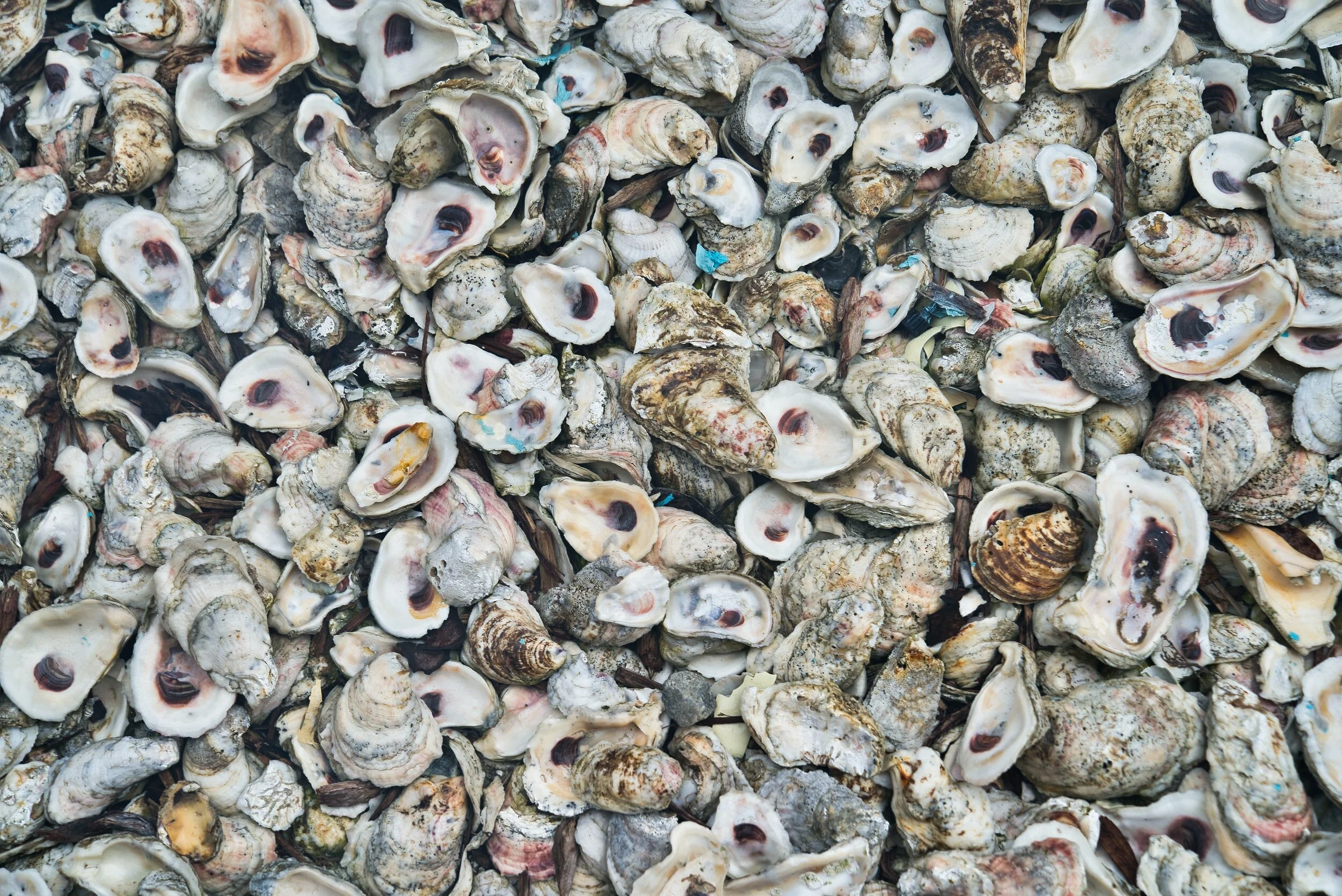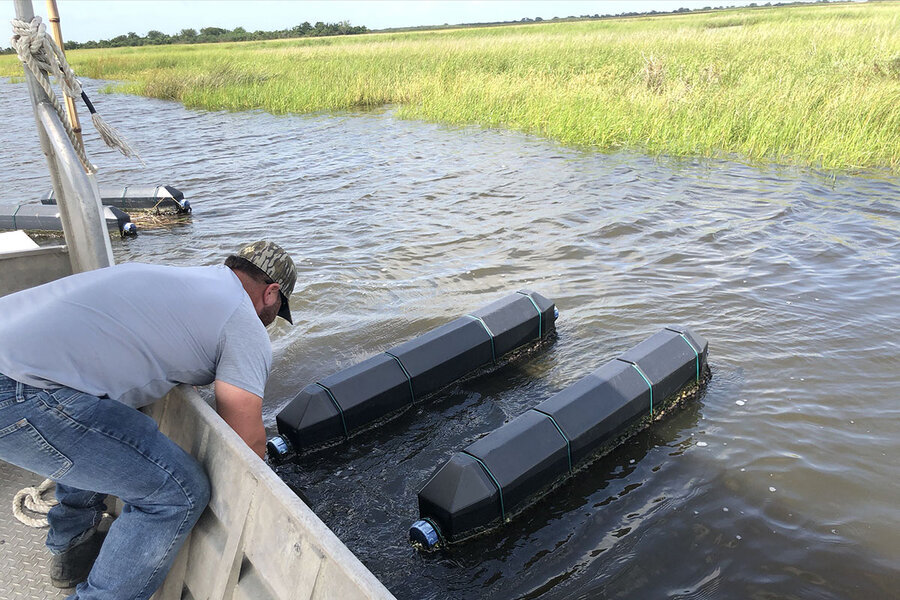‘We’re Trying to Live Out a Legacy’: After Ida, Louisiana’s Oyster Farmers Fight for Family Business
It doesn't take long to learn what's important to Tony Tesvich. Just look at what he named his boat: "Legacy."
"We're trying to live out a legacy of our people, of our family, to produce oysters," said Tesvich, a fourth-generation oyster farmer from the southern tip of Plaquemines Parish. "It's with tremendous pride that we deliver these to New Orleans restaurants."
Read More
Restaurants Experience Shortage of Oysters as Seafood Supply Takes a Hit After Hurricane Ida
As many restaurants reopen, they are now dealing with a supply shortage as the Louisiana seafood industry took a big hit during Hurricane Ida, specifically the oyster industry.
Read More
Six LSU Engineering Students Build a Robotic Arm to Help Harvest Crawfish
More than 100 million pounds of crawfish are harvested in Louisiana between March and June of every year. The unique flavor, non-demanding growing conditions and sustainability of crawfish caused the expansion of aquaculture across the country. The harvesting and sale of crawfish is now a multi-billion dollar industry which requires technological evolution to cope with the ever-increasing demand.
Spotting the need for new harvesting equipment, six engineering students worked together to build a robotic arm to automatically harvest crawfish from their traps.
Read More
USDA Invests $700 million to Provide Relief to Small Producers, Processors, Distributors, Farmers Markets and Seafood Processing Vessels and Processors Impacted by COVID-19
The U.S. Department of Agriculture (USDA) announced it will soon publish Requests for Applications (RFAs) for new grant programs - the Pandemic Response and Safety (PRS) Grant program and the Seafood Processors Pandemic Response and Safety Block Grant program - to support agricultural stakeholders who haven’t yet received substantial federal financial assistance in responding to the COVID-19 crisis.
Read More
Louisiana Law Charging Fee to Test Imported Seafood Now in Effect
Starting Sunday, 1 August, a new law took effect in Louisiana that expands the testing requirements for foreign-produced seafood sold by state businesses.
Under the law, commercial seafood permit holders who sell imported seafood will be charged a USD 100 (EUR 84.24) annual fee. According to a fiscal note for the bill, the fee will raise USD 7,500 (EUR 6,317) annually.
State Rep. Timothy Kerner (R-Lafitte) sponsored the bill, H.B. 317, in the Louisiana State Legislature during its session earlier this year. It calls for the creation of the the Imported Seafood Safety Fund,, which will be earmarked to the Louisiana Department of Health.
Read More
U.S. Spending Bills Include Millions for Seafood-Related Initiatives
Washington, D.C., U.S.A was a busy place Thursday, 29 July, as lawmakers in both the U.S. House of Representatives and U.S. Senate passed large appropriation bills, both of which included seafood-related line-items and initiatives.
In the House, a package of seven spending bills passed by a 219-208 vote. The appropriations package included funding for such agencies as the Department of Agriculture, Environmental Protection Agency, Food and Drug Administration and Department of Interior. Among the projects in the bill is a USD 6 million (EUR 5.1 million) initiative secured by Louisiana U.S. Reps. Garret Graves (R), Steve Scalise (R), and Troy Carter (D) that would redirect dredged sediment to coastal restoration projects in the state instead of having it dumped in the Gulf of Mexico.
Read More
LDWF to Begin Accepting Applications for $12.4 Million in COVID-19 Relief Funds
The Louisiana Department of Wildlife and Fisheries (LDWF) will soon begin accepting applications for $12.4 million in financial assistance that will be available to Louisiana fishermen and others in the industry who have been financially affected by the COVID-19 pandemic. Applications for these funds will open at 8 a.m., Monday, August 9.
Read More
Childhood Memories Inspired Shrimp and Petroleum Festival Poster
Childhood memories of visits to Morgan City have become the visual symbol of the 2021 Louisiana Shrimp and Petroleum Festival.
The festival leadership unveiled the event’s 2021 poster Thursday at the Bayou Bash Kickoff event at Hampton Inn & Suites and introduced the artist who created the artwork, LSU senior Genevieve Breckoff.
Read More
Crayfish ‘Crayze’ at McPherson Lake: Invasive Species Make Kansas Debut
Researchers have discovered a new species at McPherson Lake. The rusty crayfish is considered an invasive species. Although they have affected the waters of some of our neighboring states, it’s the first time in history we see them in Kansas.
“Because this is the first population of rusty crayfish in Kansas, we don’t really know exactly what to expect,” said Chris Steffen, the Aquatic Nuisance Species Coordinator at Kansas Wildlife and Parks.
Read More
How Frugé Aquafarms Produces Over One Million Pounds of Crawfish Each Year
Host Daniel Geneen learns about growing, harvesting, and eating crawfish from Louisiana farmer Mike Frugé figured out that the two year growing cycle of crawfish synced perfectly with the two year cycle of the rice crop. Now, rice fields are seeded with baby crawfish every other year, creating a new source of food and income for farmers. Host Daniel Geneen visited the farm in Louisiana to see how over a million crawfish are harvested each year.
Read More
Crawfish Boils Land Rookies in Hot Water
As a rule, crawfish from the Frugé family farm never went far in life.
This season, though, more of them are landing everywhere from San Francisco to New York City, including households with no clue how to handle the crustacean—which arrive still kicking—much less how to cook and eat them.
Read More
Here's How Louisiana Oyster Farmers Can Apply For State Grants to Expand New Harvesting Methods
Louisiana oyster farmers can apply for grants designed to expand the use of new harvesting methods.
Louisiana Sea Grant has received $3 million for the program. The money comes from the state Wildlife and Fisheries Department and the Louisiana Coastal Restoration and Protection Program.
For more than a decade, Sea Grant has experimented with growing oysters in floating cages or cages placed on waterbottoms and attached to pylons in a project at Grand Isle. The method allows the cages to be raised and lowered to protect oysters from predators, fouling and the burial effects of disasters like hurricanes.
Read More
An Oysterman’s New Worry: Will State’s Coastal Plan Wash Out His Business?
Sun-kissed lines frame Terry Shelley’s face like high tide stains a fishing dock. Today, those creases seem deepened by anger, but it’s the tone of his voice that gives it away.
Mr. Shelley has spent his entire working life as a commercial fisherman. Before he was a full-time oyster farmer and harvester, he spent the first part of his career harvesting shrimp and reef fish. He’s seen a lot, but not a pileup of challenges like now.
Read More
The United States Crayfish Market to be Driven by Rising Demand for Different Forms of Crayfish in the Forecast Period of 2021-2026
The new report by Expert Market Research titled, ‘United States Crayfish Market Size, Share, Price, Trends, Growth, Report and Forecast 2021-2026’, gives an in-depth analysis of the United States crayfish market, assessing the market based on its segments like type, major production regions, and consumption regions. The report tracks the latest trends in the industry and studies their impact on the overall market. It also assesses the market dynamics, covering the key demand and price indicators, along with analyzing the market based on the SWOT and Porter’s Five Forces models.
Read More
Apple Snails Continue to Be Problem in Southwest Louisiana
A non-native invasive species continues to be a growing problem in Southwest Louisiana.
Apple snails can overpopulate and steal resources away from native species, consuming large quantities of plant materials and damaging important habitats for native fish and wildlife.
Read More















